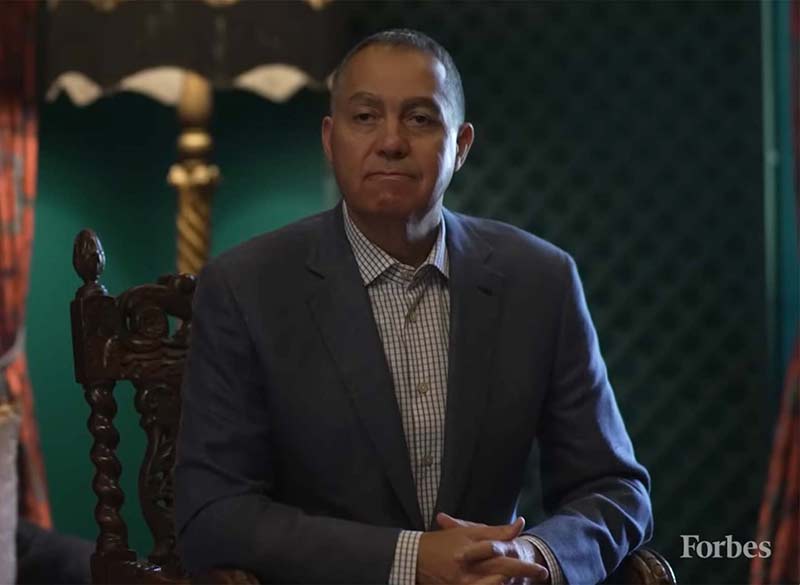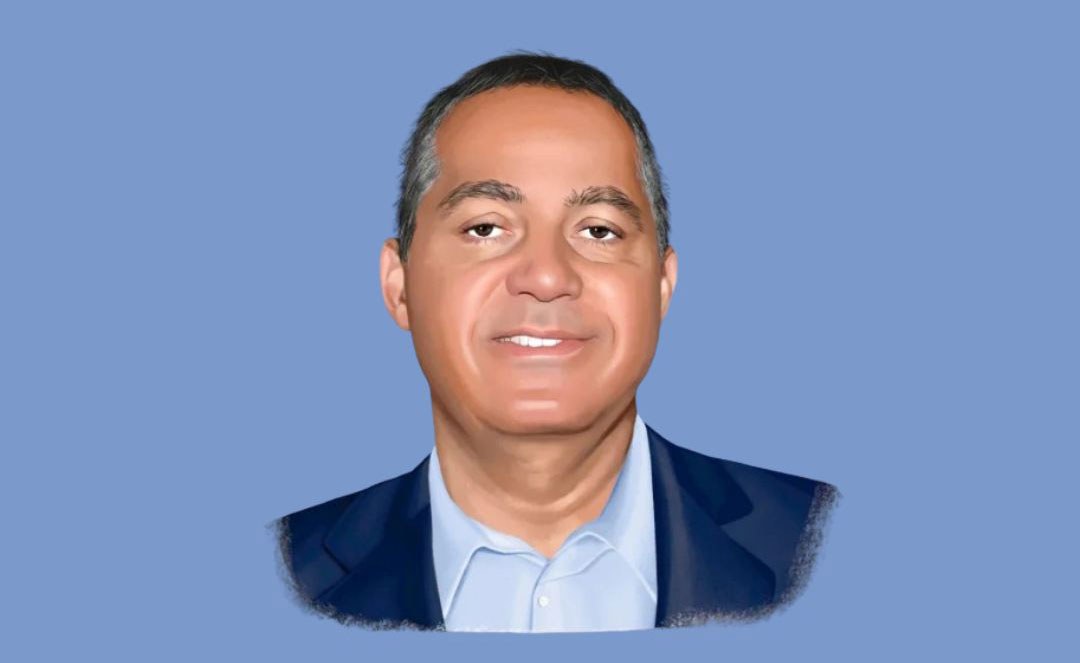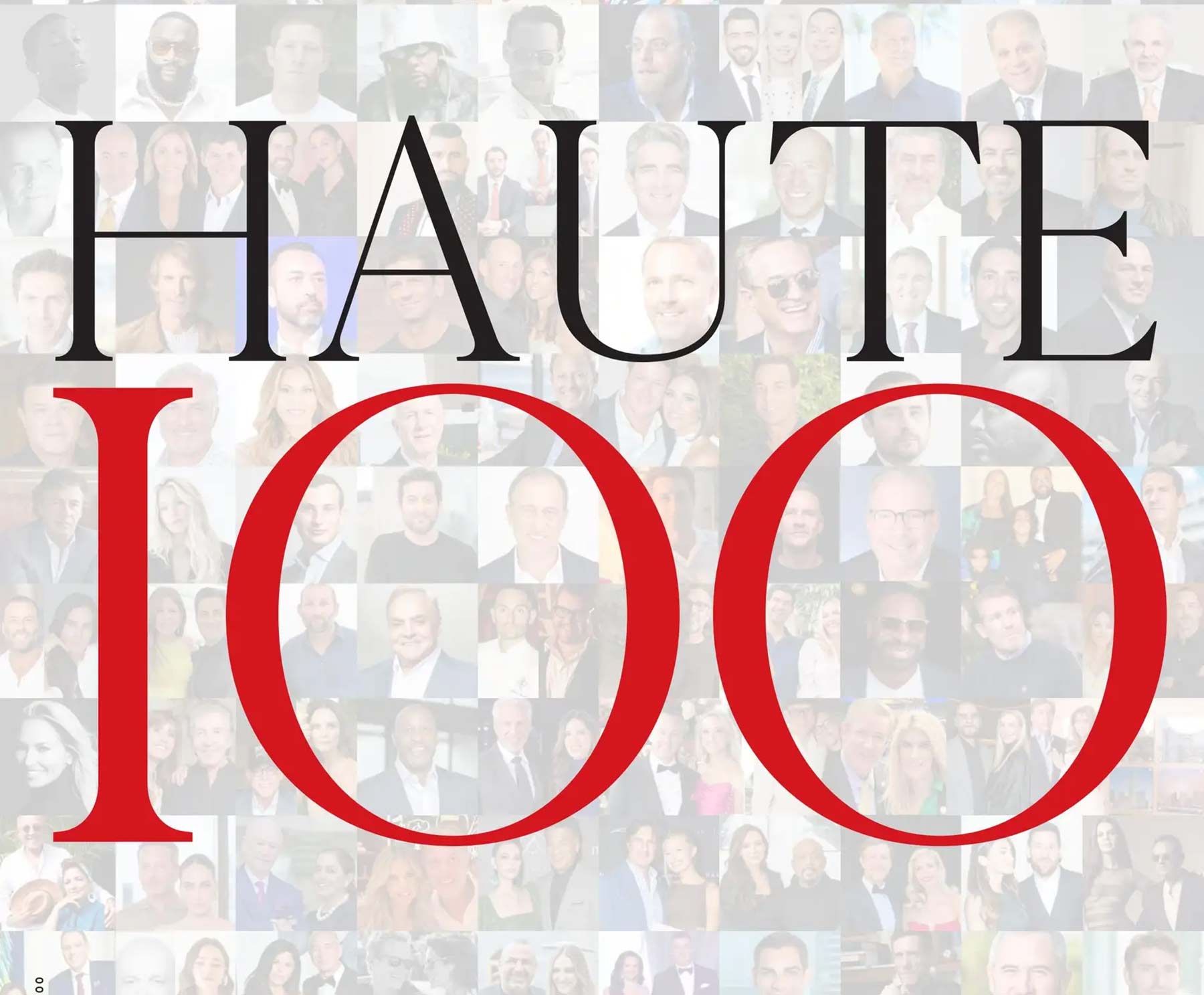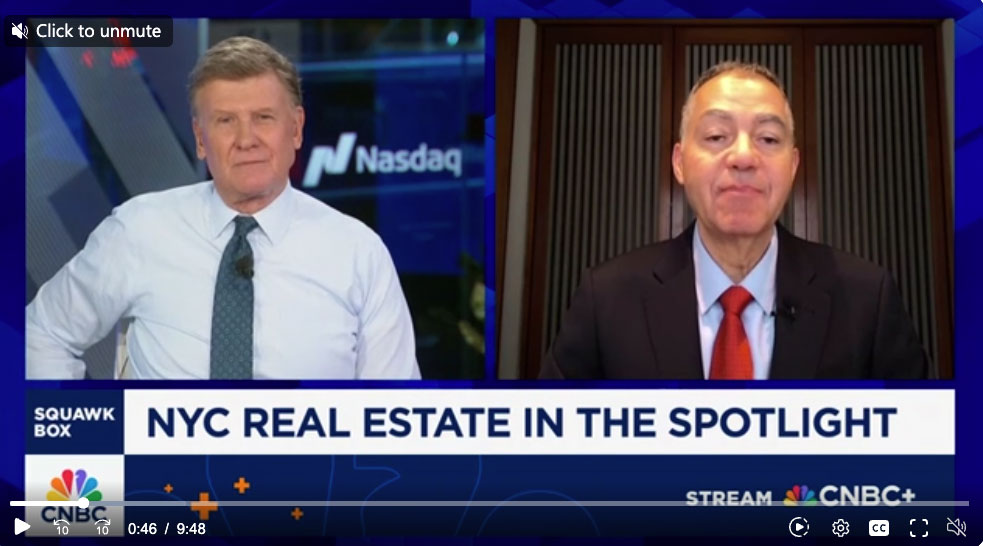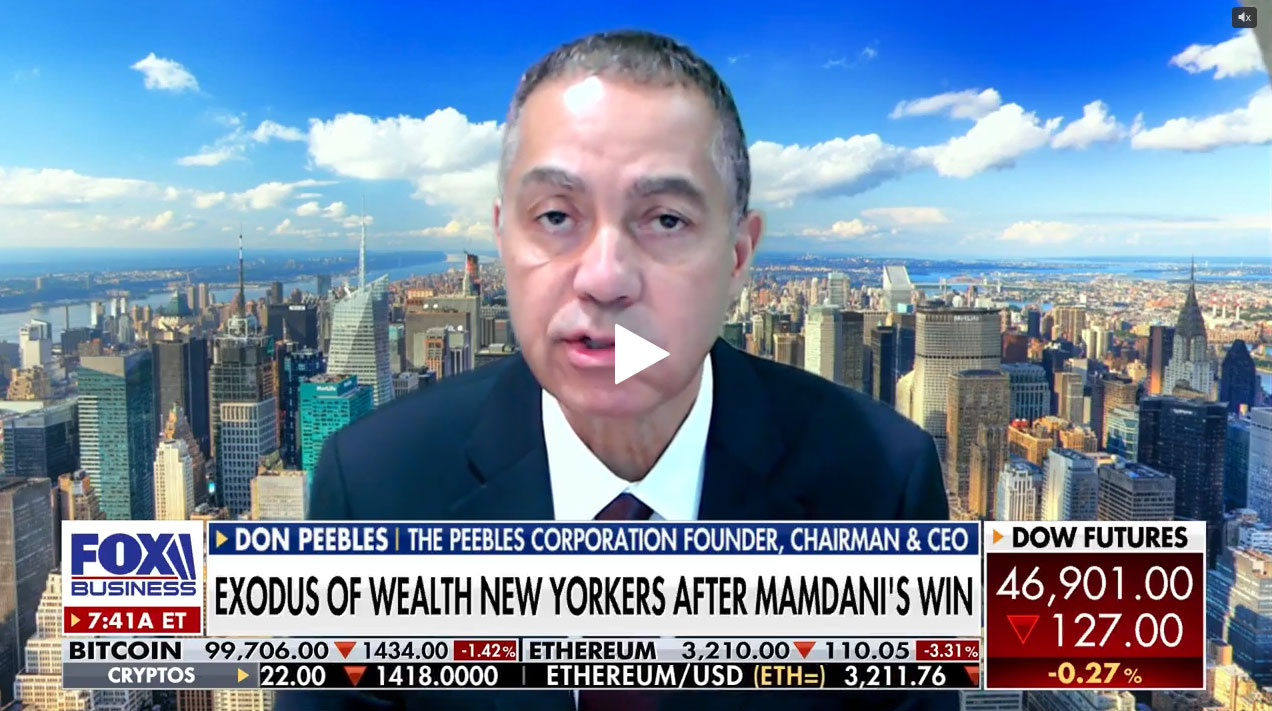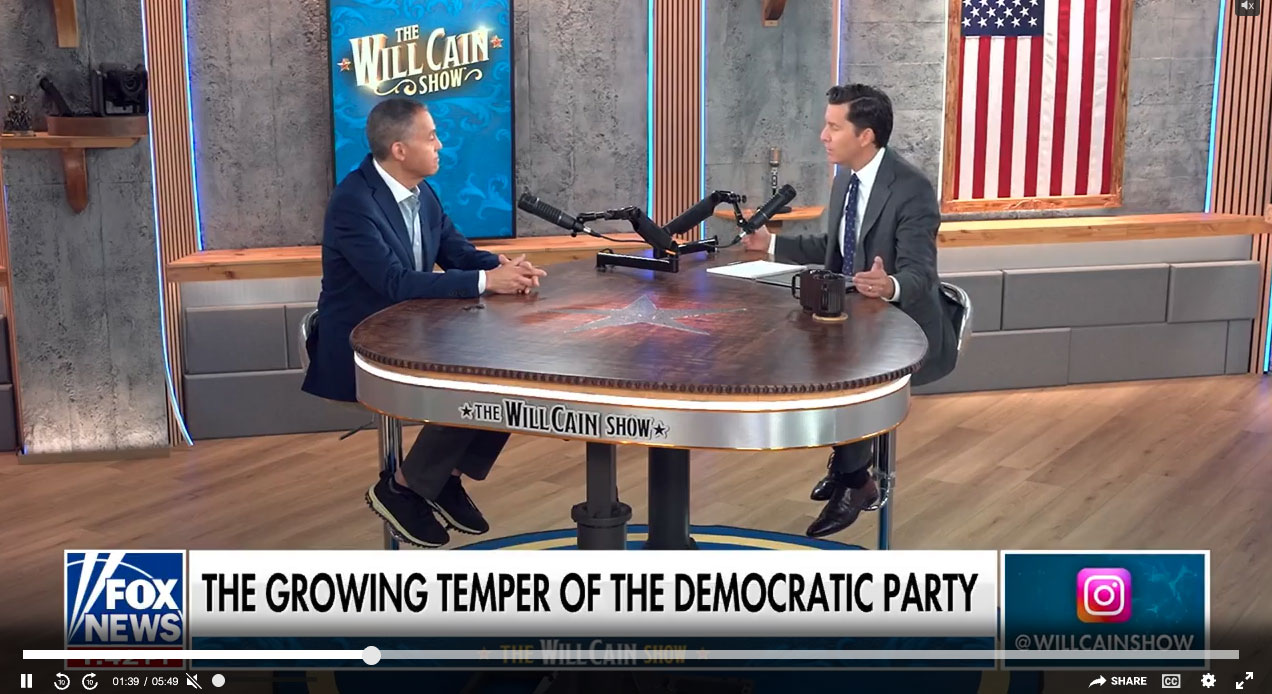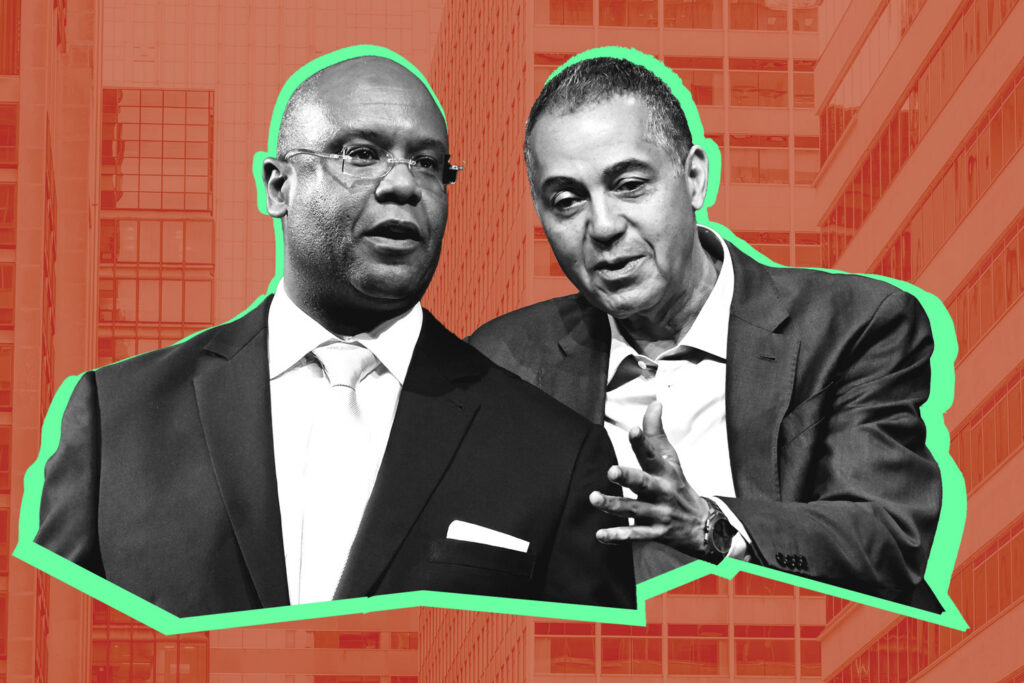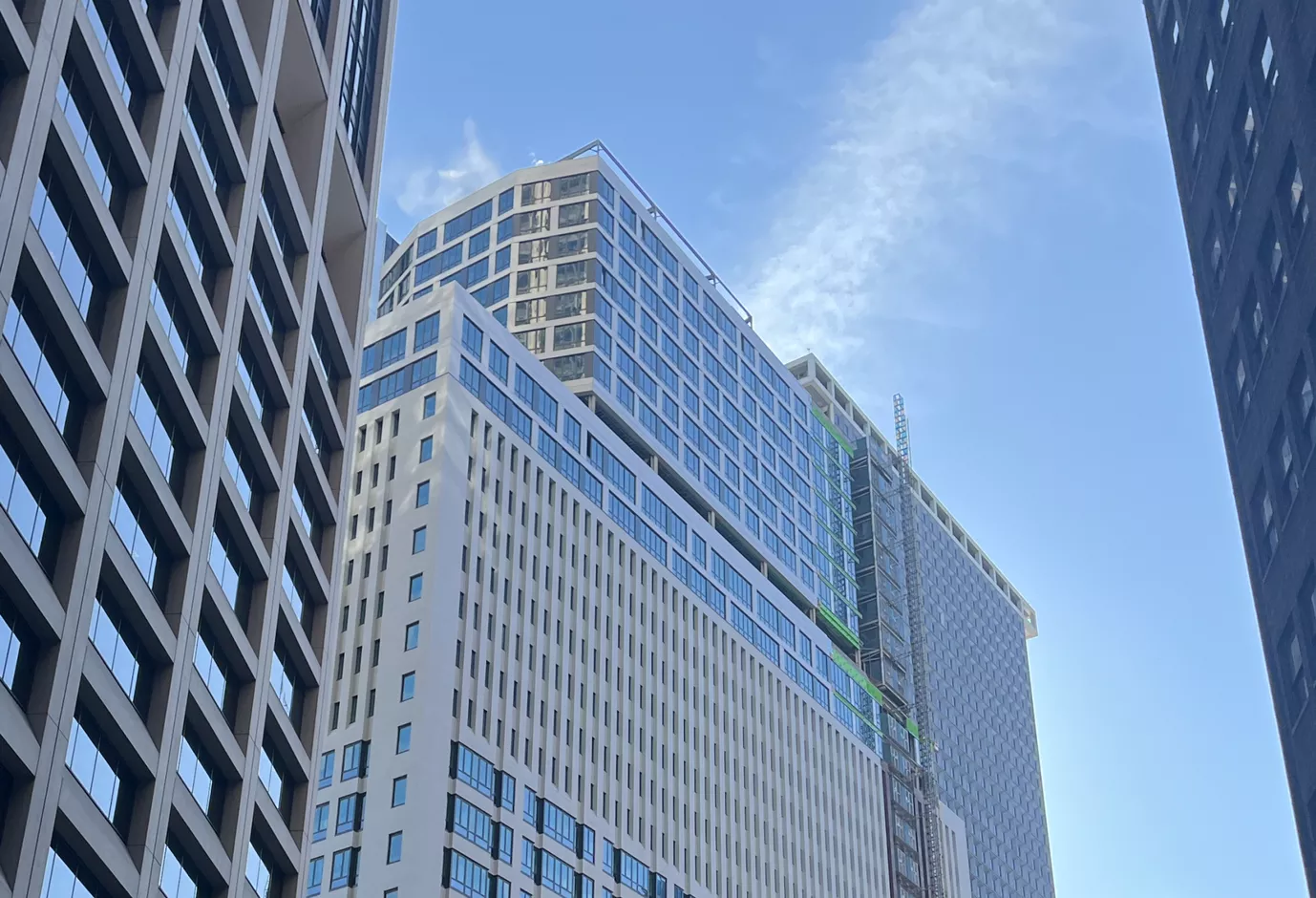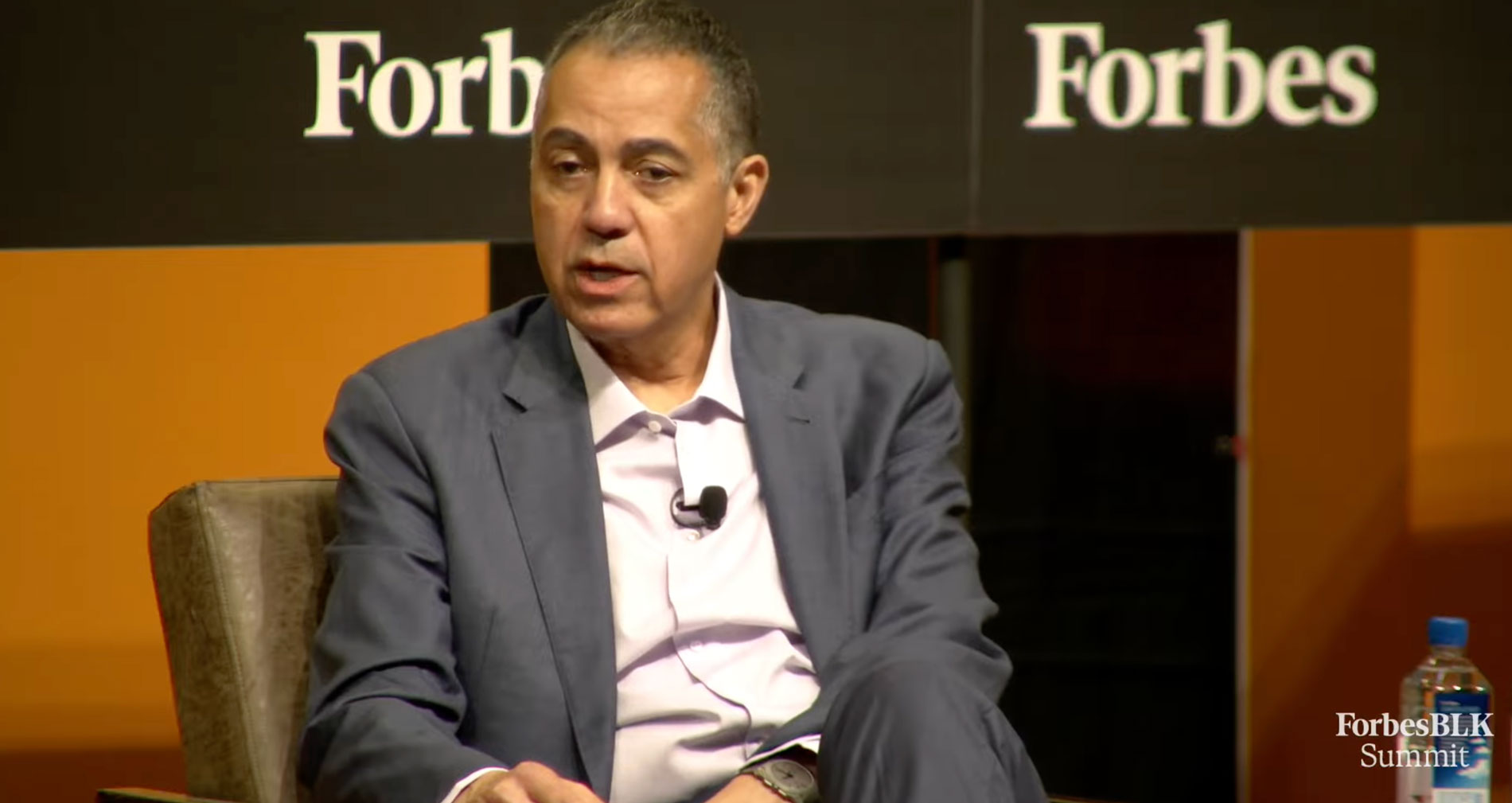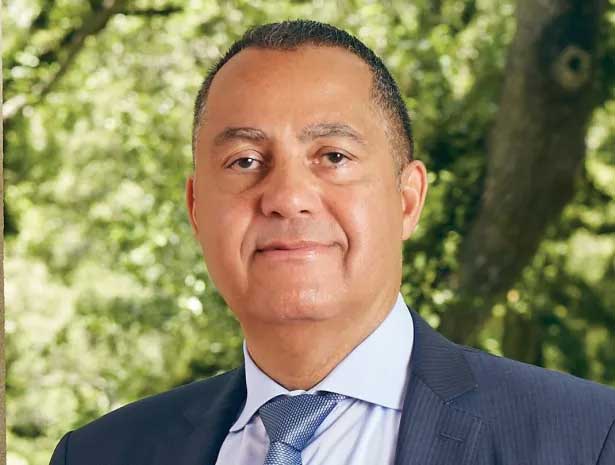Don Peebles, The Peebles Corporation CEO and chairman, joins 'Squawk Box' to discuss Zohran Mamdani's election victory to become the next mayor of New York City, concerns about a wealth flight from NYC to Florida and Texas, state of the Democratic Party, and more.
Click here to see the full interview.
Don Peebles on Fox News’ “The Will Cain Show” Former Obama fundraiser Don Peebles appeared on The Will Cain Show to discuss the growing divide within the Democratic Party, describing it as a civil war between far-left progressives and moderate Democrats.
Developer Don Peebles and former BlackRock executive Doug McNeely are closing in on a fundraising goal milestone.
The partners are nearing $1 billion in commitments for their office conversion fund, a national play to turn the country’s surplus of empty offices into housing, the Commercial Observer reported.
Click here to read the full article from The Real Deal.
Developer Don Peebles and BlackRock alum Doug McNeely are assembling the pot to invest in projects in cities from San Francisco to Boston
Read the full article in The Commercial Observer.
In this fireside chat, Don Peebles, the CEO of the Peebles Corporation, explores potential solutions to address the issues. He also shares an update on a plan to raise $1billion to support future development projects and discuss pathways to access capital.
Donahue Peebles Speaks at Commercial Observer’s South Florida Development & Capital Leadership Forum
At Commercial Observer’s South Florida Development & Capital Leadership Forum, R. Donahue Peebles Jr., chairman and CEO of The Peebles Corporation, discussed the region’s evolving real estate landscape and cultural identity. Speaking from The Bath Club, an oceanfront Miami Beach property he purchased in 2000 after becoming its first Black member in the late 1990s, Peebles reflected on acquiring the club as a way to confront Miami’s history of racism and antisemitism and to ensure such exclusion never recurs. On market trends, he noted that the next generation’s mobility and shifting values are redefining housing demand, predicting that “we’re going to become much more of a rental society.” His remarks concluded a day of discussions about Miami’s transformation from a pandemic-fueled boomtown into a more mature, globally competitive city—one still grappling with slower sales, affordability challenges, and infrastructure constraints.
Read the full recap from The Commercial Observer.
THE PEEBLES CORPORATION®
NEW YORK
BOSTON
WASHINGTON, DC
CHARLOTTE
ATLANTA
MIAMI BEACH
SAN FRANCISCO

